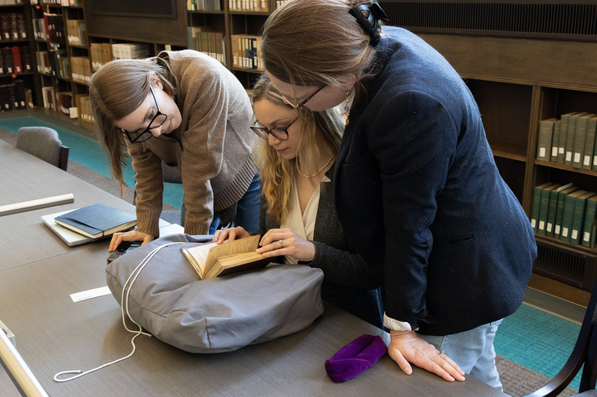
Excerpted from June 9 CAS Connection, story by Jenny Brooks — Going to the theater in London in the 18th century was a good time—and a transformative time. Playhouses across the city were bursting with activity as crowd-pleasing favorites from the heyday of Shakespeare mixed with slapstick entertainments and boundary-pushing artistic experimentation. These shows drew lively, often raucous audiences from a mix of social and economic classes that seldom crossed paths elsewhere.
“The 18th-century London theater world has it all,” says Mattie Burkert, an associate professor of English and director of the digital humanities minor in the College of Arts and Sciences. “Scandals, government censorship, audience riots, labor strikes, market manipulation, corporate intrigue—you name it.”
Burkert says this period in history has a lot to teach us about our own moment, especially in terms of the relationships between popular culture, public opinion and institutions. But, she said, “it’s a hard story to tell if you can’t access the documents that bring it to life.”
Historical data about the plays and everyone involved is primarily stored in hard-to-access archives located all over the UK, Europe and North America. It makes researching 18th-century theater a slow and arduous process that requires time and money.
Enter the London Stage Database, a groundbreaking digital catalog of theater performances in London between 1660 and 1800. Hosted at University of Oregon, the database includes dates and locations for more than 52,000 action-packed nights at the theater, along with titles and cast lists for each evening’s entertainments; ticket-sales figures; and critical commentary.
These details were originally gathered from playbills, advertisements, and playhouse account books and published as an 11-book reference series, The London Stage, 1660-1800, during the 1960s. The records were digitized in the 1970s using a mainframe computer, but the technology became obsolete and the project was abandoned.
In 2013, Burkert—then a doctoral student—uncovered this story while writing her dissertation. Since then, she and a growing team of collaborators have worked to recover the remaining data from the 1970s and expand access to the history it represents.
In 2018, Burkert received a Digital Humanities Advancement grant from the National Endowment for the Humanities to officially launch the London Stage Database as a free-to-use website with a modern search interface. The resource, which peer reviewers have called field-changing, has taken on central importance for scholars, librarians and archivists who study and preserve the history of British literary and performance cultures.
“It takes constant effort to keep the resource up to date and be responsive to users’ changing needs,” Burkert says. “We want to ensure it reflects the field’s evolving knowledge about the subject matter, and it’s become my life’s work.”
Click here to read the full story. Mattie Burkert is a CSWS faculty affiliate.

